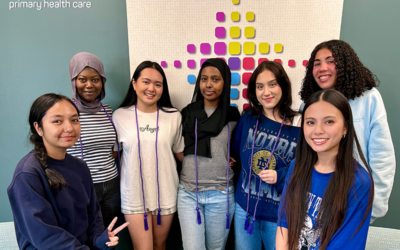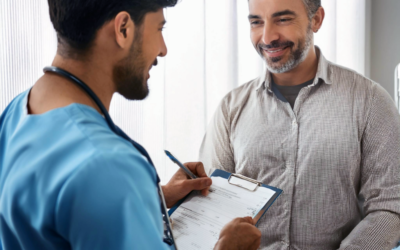Measles is a serious illness that spreads easily — especially among kids and people who aren’t vaccinated. The best way to protect yourself and your family is by getting the MMR vaccine.
🛡️ What Is the MMR Vaccine?
The MMR vaccine protects against measles, mumps, and rubella. These are three diseases that can make people very sick. Some children may also get the MMRV vaccine, which includes chickenpox protection, too. Most people who get the MMR vaccine are protected for life!
👶 When Should Kids Get the MMR Vaccine?
Children need two doses of the MMR vaccine:
- 1st dose: When your child is 12 to 15 months old
- 2nd dose: Between 4 and 6 years old
If your child hasn’t had both doses, it’s not too late — they can still catch up!
👨👩👧 What About Teens and Adults?
Older kids, teens, and adults also need the MMR vaccine if they didn’t get it as children or don’t have proof they are immune.
Most people will need one or two doses, given at least 28 days apart. If you’re not sure if you had the vaccine, your doctor can help.
✈️ Traveling Soon?
Going outside the U.S.? Measles is more common in some countries.
- Babies 6–11 months old should get 1 early dose before traveling
- They’ll still need 2 more doses after they turn 1
- Older kids and adults should make sure they’re fully vaccinated before they travel
💙 PHC Makes It Easy to Stay Protected
At Primary Health Care (PHC), we provide vaccines for kids and adults. Our friendly team can check your records and help you get up to date.
✅ We accept Medicaid, Medicare, and all insurance plans
✅ No insurance? No problem — we offer a sliding fee scale based on your income
✅ No one is turned away, no matter what
Find a PHC clinic near you at phciowa.org/location or call us to make an appointment.
👩⚕️ Questions?
If you’re unsure whether you or your child needs the MMR vaccine, talk to your PHC provider. We’re here to help keep your family safe and healthy.
🧠 Sources:
- CDC – MMR Vaccine Information
- CDC – Travelers’ Health: Measles
Related Posts
Men: Ignoring Your Teeth Could Be Hurting Your Heart
Men: Take Care of Your Teeth to Protect Your Heart Taking care of your teeth and gums does more than give you a nice smile. It can also help keep your heart healthy. How Are Your Teeth and Heart Connected? If you don’t brush or floss your teeth, bacteria (germs) can...
Making It OK: Let’s Talk About Mental Health
May is Mental Health Awareness Month—a time when communities come together to remind everyone that discussing mental health is not only acceptable, it’s essential. At Primary Health Care, we believe that every conversation matters. When we share our feelings,...
Breaking the Stigma: Students Speak Out on Mental Health
PHC's Student Advisory Council took over Polk County Health Department's By The Numbers podcast to talk about teens and mental health. Watch both Part 1 and Part 2 here!By the Numbers- Health Ya! Part 1: Youth Mental Health with the PHC Student Advisory CouncilBy the...
Feeling Overwhelmed? Discover 5 Simple Stress-Busting Techniques You Can Start Today
April is Stress Awareness Month, a time to recognize the impact stress has on our lives and learn effective ways to manage it. Stress affects everyone differently—what's stressful for one person might not be for another. Both joyful events, like a new job or moving...
STOP Eating These Foods If You’re Stressed!
Cortisol is a hormone our bodies make when we're stressed. It helps us handle tough situations, but too much for too long can harm our health. Some foods can raise cortisol levels, making stress harder to manage. Let’s learn about these foods and how to make healthier...
Colon Cancer Can Be Silent—But This Simple Test Could Save Your Life!
Colorectal cancer is a type of cancer that starts in the colon or rectum. It's one of the most common cancers in the United States, but it's also one of the most preventable. Regular screening can find this cancer early, when treatment works best. Who Should Get...






